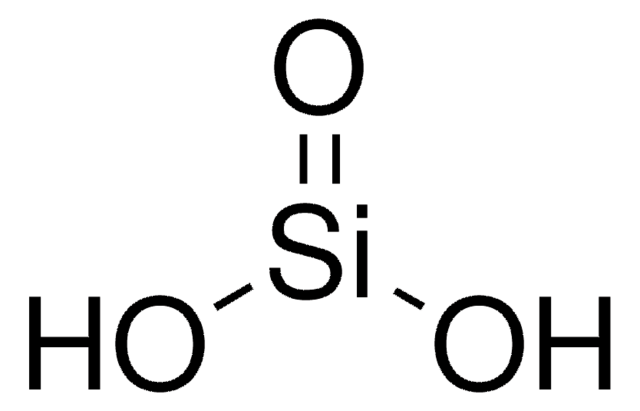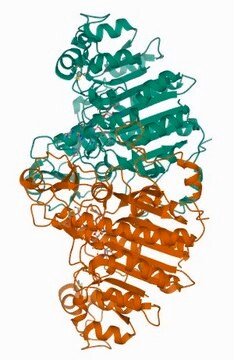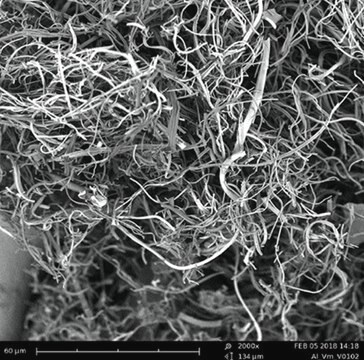SILAW
Silicic acid
BioReagent, suitable for column chromatography, 200-400 mesh (38 - 75 μm)
About This Item
Produits recommandés
Gamme de produits
BioReagent
Pureté
≥99.9% Si (as SiO2) basis
Forme
solid
Impuretés
≤0.2% % nonvolatile with HF
Taille des particules
200-400 mesh (38 - 75 μm)
Traces d'anions
chloride (Cl-): ≤0.01%
sulfate (SO42-): ≤0.02%
Traces de cations
Fe: ≤0.01%
heavy metals (as Pb): ≤0.001%
Adéquation
suitable for column chromatography
Chaîne SMILES
O[Si](O)=O
InChI
1S/H2O3Si/c1-4(2)3/h1-2H
Clé InChI
IJKVHSBPTUYDLN-UHFFFAOYSA-N
Vous recherchez des produits similaires ? Visite Guide de comparaison des produits
Application
Notes préparatoires
Mention d'avertissement
Warning
Mentions de danger
Conseils de prudence
Classification des risques
Eye Irrit. 2 - STOT SE 3
Organes cibles
Respiratory system
Code de la classe de stockage
11 - Combustible Solids
Classe de danger pour l'eau (WGK)
WGK 3
Point d'éclair (°F)
Not applicable
Point d'éclair (°C)
Not applicable
Équipement de protection individuelle
dust mask type N95 (US), Eyeshields, Gloves
Certificats d'analyse (COA)
Recherchez un Certificats d'analyse (COA) en saisissant le numéro de lot du produit. Les numéros de lot figurent sur l'étiquette du produit après les mots "Lot" ou "Batch".
Déjà en possession de ce produit ?
Retrouvez la documentation relative aux produits que vous avez récemment achetés dans la Bibliothèque de documents.
Notre équipe de scientifiques dispose d'une expérience dans tous les secteurs de la recherche, notamment en sciences de la vie, science des matériaux, synthèse chimique, chromatographie, analyse et dans de nombreux autres domaines..
Contacter notre Service technique





